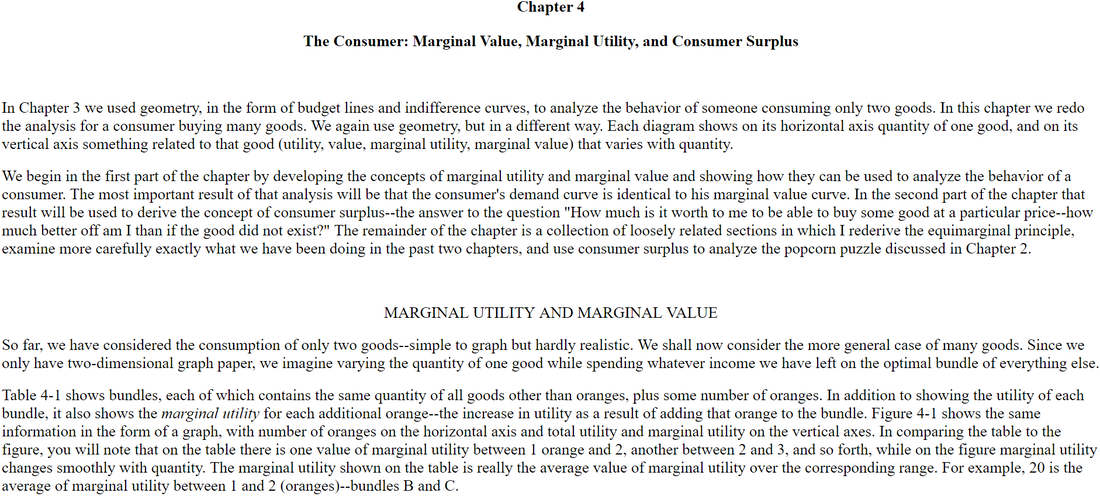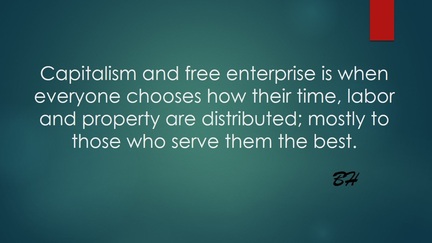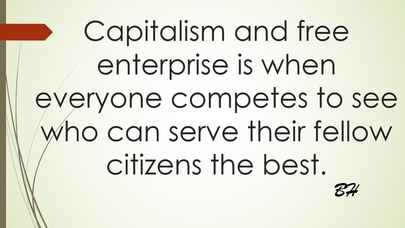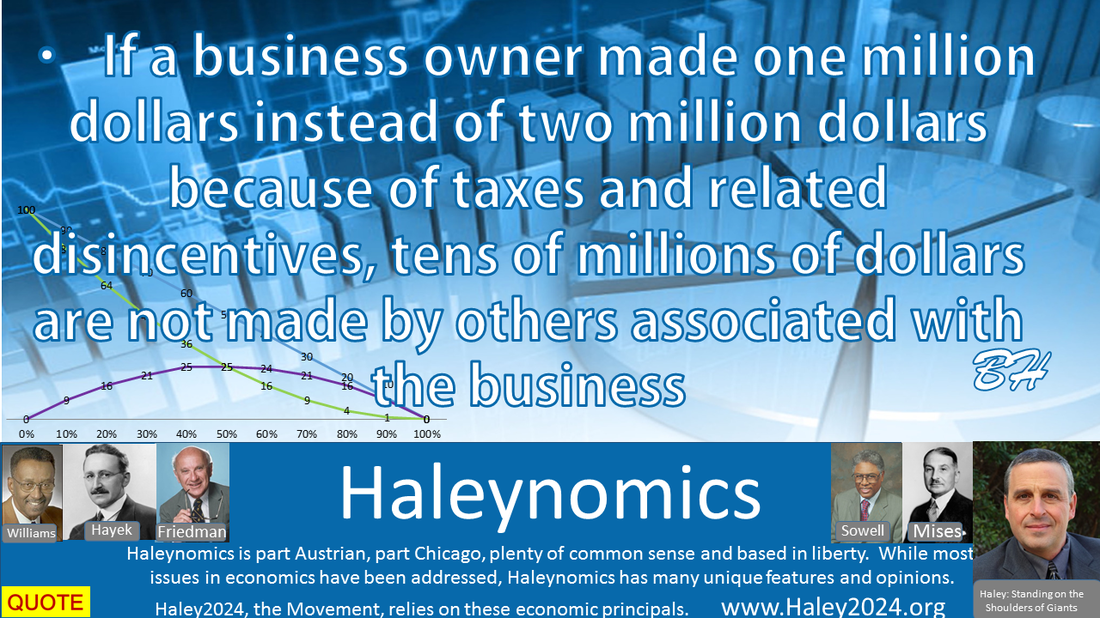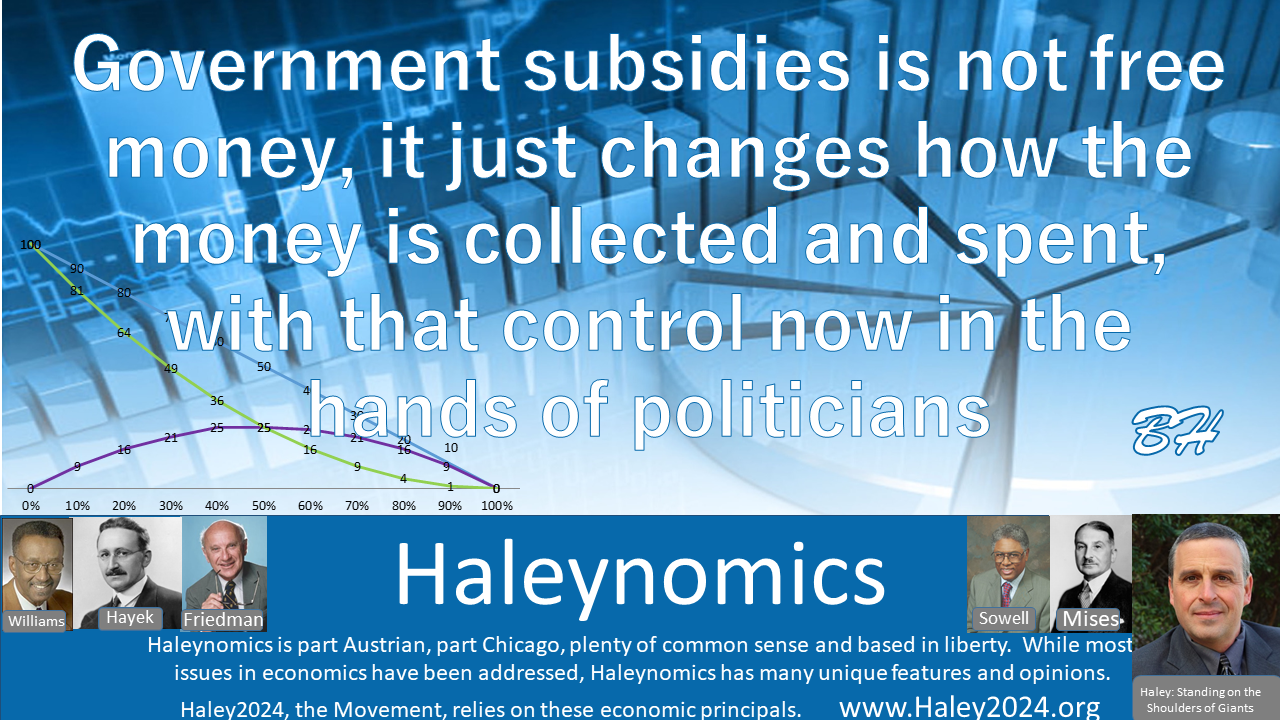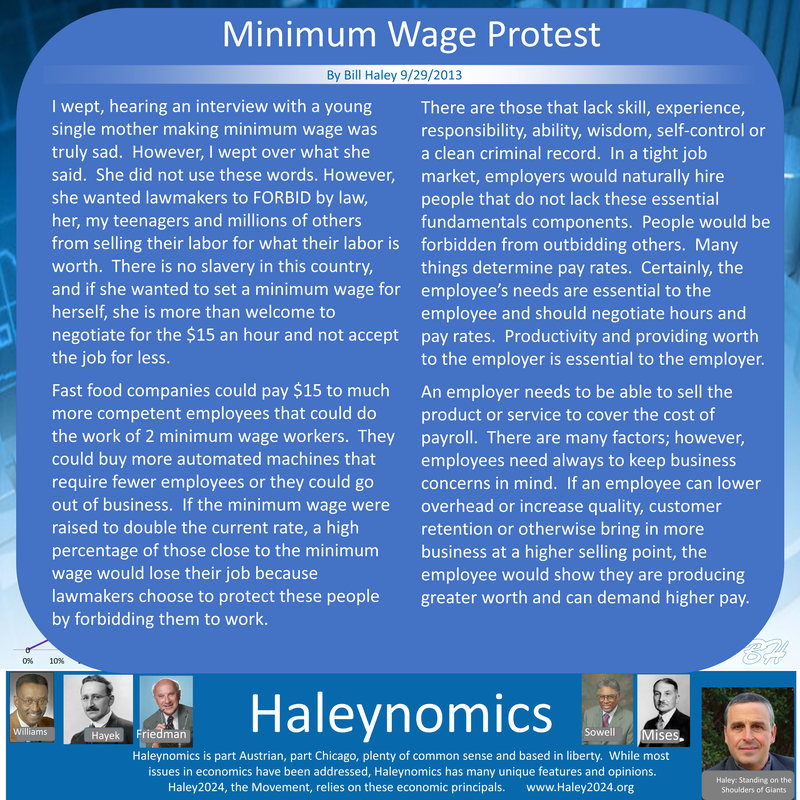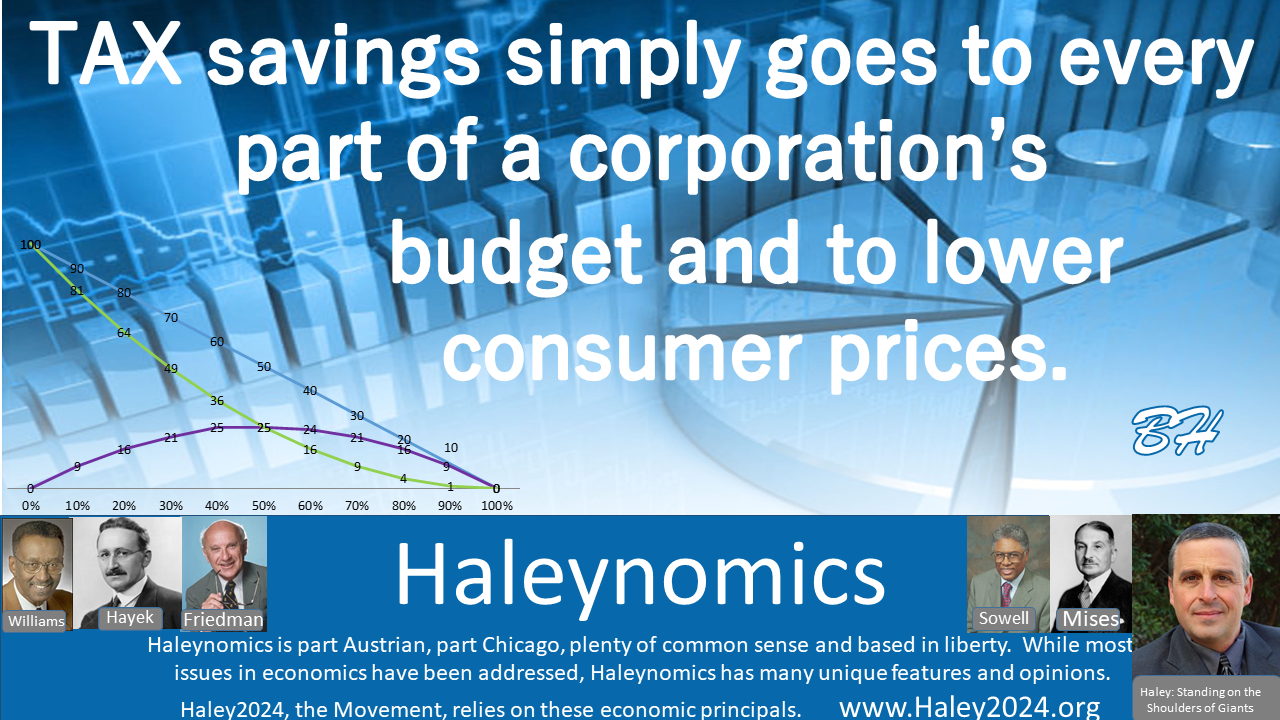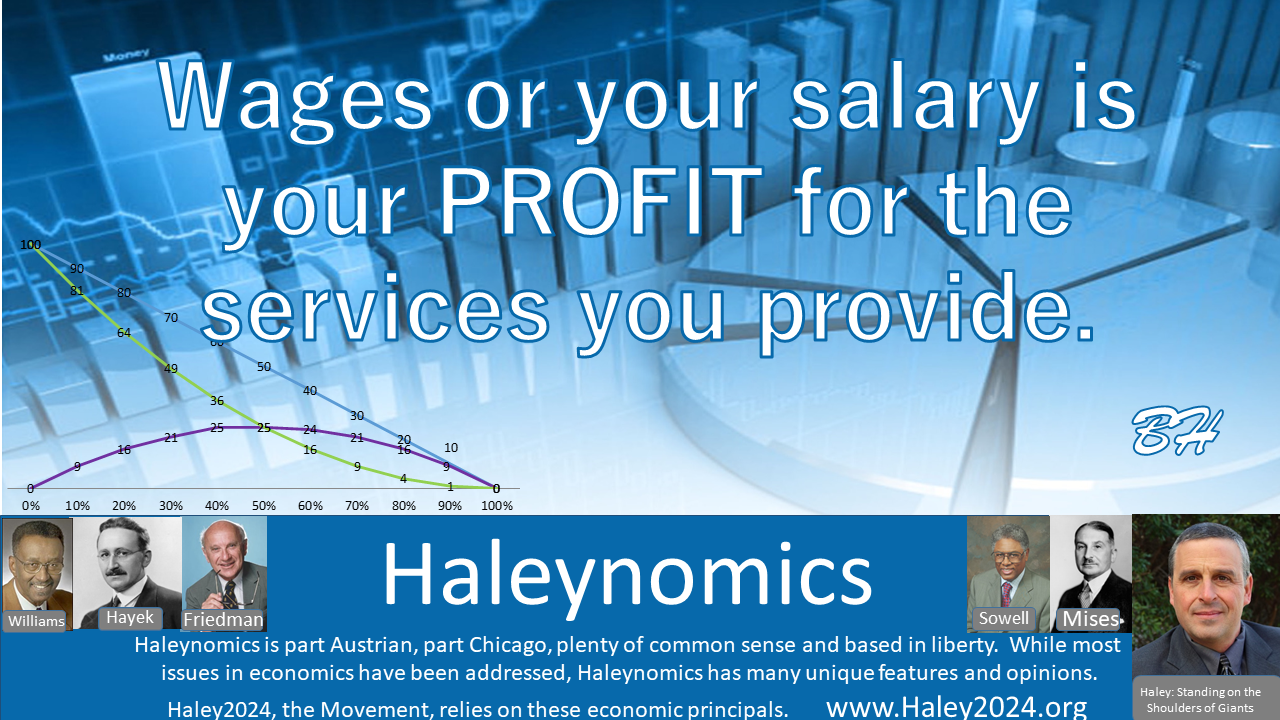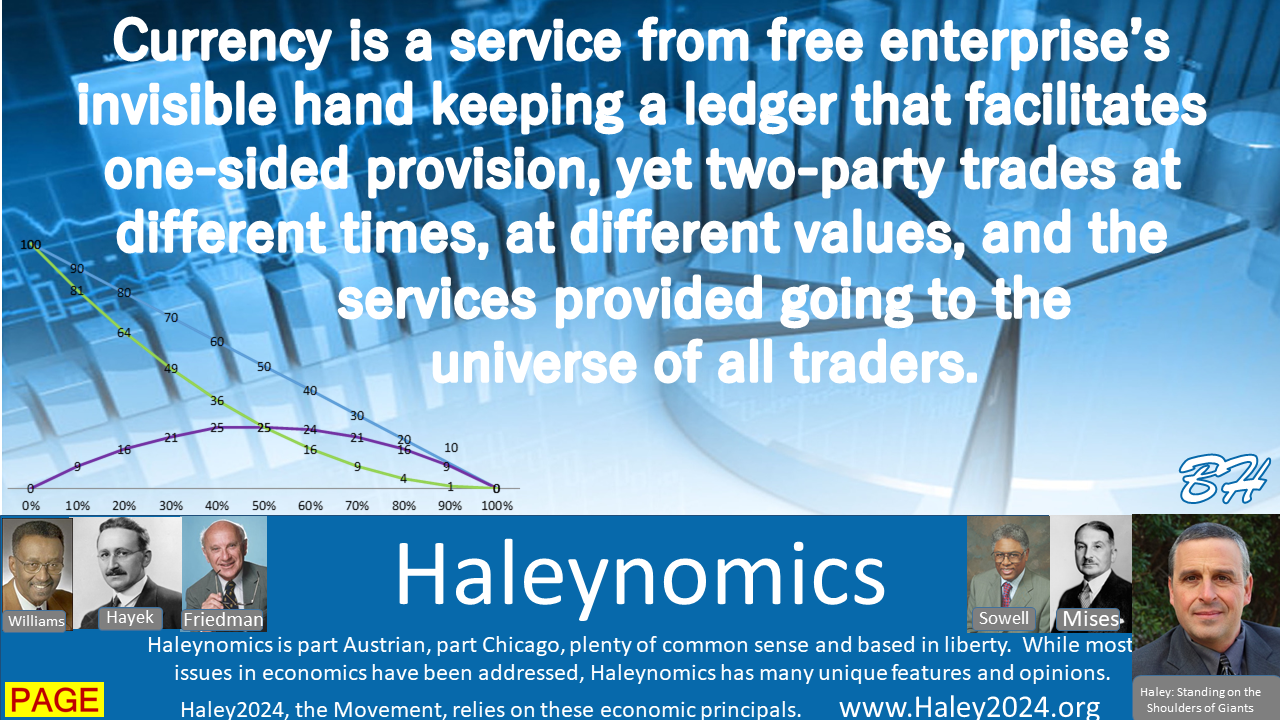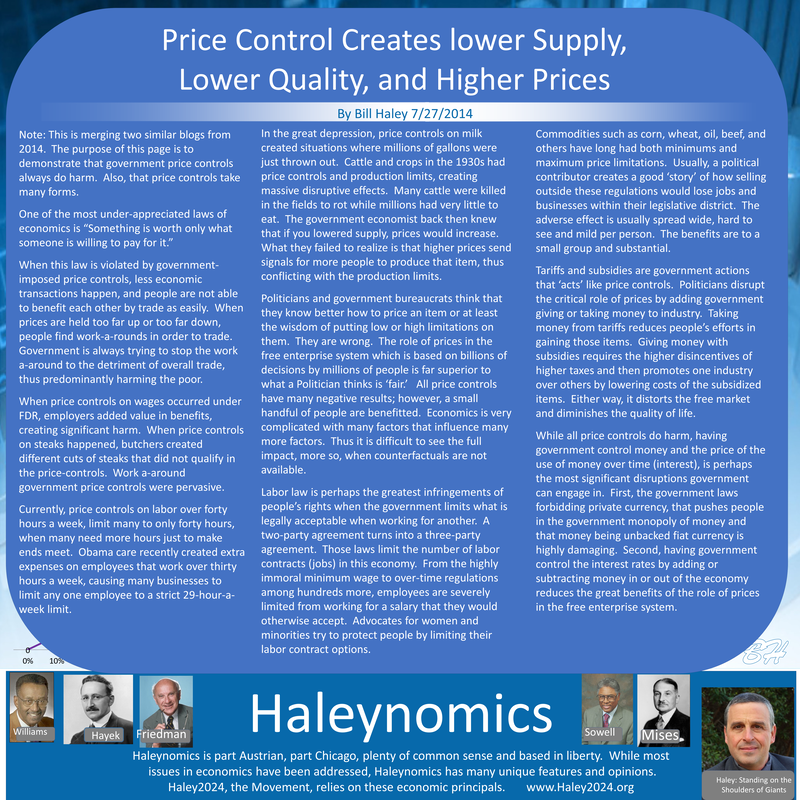| Note: This is merging two similar blogs from 2014. One of the most under-appreciated laws of economics is “Something is worth only what someone is willing to pay for it.” When this law is violated by government-imposed price controls, less economic transactions happen, and people are not able to benefit each other by trade as easily. When prices are held too far up or too far down, people find work-a-rounds in order to trade. Government is always trying to stop the work a-around to the detriment of overall trade, thus predominantly harming the poor. |
| Currently, price controls on labor over forty hours a week, limit many to only forty hours, when many need more hours just to make ends meet. Obama care recently created extra expenses on employees that work over thirty hours a week, causing many businesses to limit any one employee to a strict 29-hour-a-week limit. |
| In the great depression, price controls on milk created situations where millions of gallons were just thrown out. Cattle and crops in the 1930s had price controls and production limits, creating massive disruptive effects. Many cattle were killed in the fields to rot while millions had very little to eat. The government economist back then knew that if you lowered supply, prices would increase. What they failed to realize is that higher prices send signals for more people to produce that item, thus conflicting with the production limits. |
| Politicians and government bureaucrats think that they know better how to price an item or at least the wisdom of putting low or high limitations on them. They are wrong. The role of prices in the free enterprise system which is based on billions of decisions by millions of people is far superior to what a Politician thinks is ‘fair.’ All price controls have many negative results; however, a small handful of people are benefitted. Economics is very complicated with many factors that influence many more factors. Thus it is difficult to see the full impact, more so, when counterfactuals are not available. |
| Labor law is perhaps the greatest infringements of people’s rights when the government limits what is legally acceptable when working for another. A two-party agreement turns into a three-party agreement. That limitation is by definition the number of labor contracts (jobs) in this economy. From the highly immoral minimum wage to over-time regulations among hundreds more, employees are severely limited from working for a salary that they would otherwise accept. Advocates for women and minorities try to protect people by limiting their labor contract options. |
| Commodities such as corn, wheat, oil, beef, and others have long had both minimums and maximum price limitations. Usually, a political contributor creates a good ‘story’ of how selling outside these regulations would lose jobs and businesses within their legislative district. The adverse effect is usually spread wide, hard to see and mild per person. The benefits are to a small group and substantial. |
| Tariffs and subsidies are government actions that ‘acts’ like price controls. Politicians disrupt the critical role of prices by adding government giving or taking money to industry. Taking money from tariffs reduces people’s efforts in gaining those items. Giving money with subsidies requires the higher disincentives of higher taxes and then promotes one industry over others by lowering costs of the subsidized items. Either way, it distorts the free market and diminishes the quality of life. |
| While all price controls do harm, having government control money and the price of the use of money over time (interest), is perhaps the most significant disruptions government can engage in. First, the government laws forbidding private currency, that pushes people in the government monopoly of money and that money being unbacked fiat currency is highly damaging. Second, having government control the interest rates by adding or subtracting money in or out of the economy reduces the great benefits of the role of prices in the free enterprise system. |

